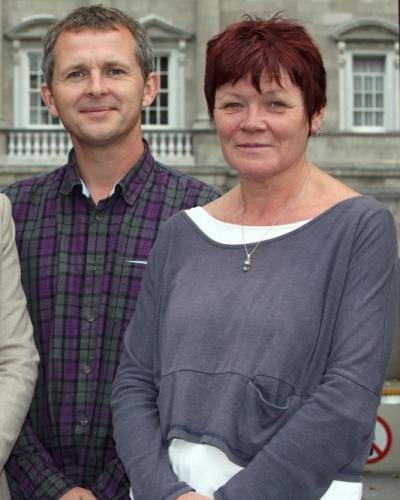At a press conference today in the Mont Clare hotel in Dublin, the People Before Profit Alliance said that the government were lying and deceiving the public about the provisions of both the Fiscal Treaty and the European Stability Mechanism (ESM).
PBPA said the government had refused to acknowledge the enormous level of further cuts and austerity that would be necessary to meet the deficit and debt targets contained in the Fiscal Treaty, even though the figures were well known to them.
PBPA said also that the government had utterly deceived the public about the ESM in claiming that it represented an “insurance policy” for the Irish people. PBPA said the ESM was simply a permanent version of the EU-IMF austerity programme, designed to bail-out the European banking system, where any funding would be conditional on imposing further brutal austerity, and which could cost the Irish people €11 billion or even more to access.
A NO vote is a vote against the failed and disastrous policies of bailing out banks and savage cuts. It is a vote demanding that jobs, economic growth and fairness become the priority for dealing with the current economic crisis. We urge people to raise their voices this Thursday to demand that alternative by voting NO.
Richard Boyd Barrett TD said: “The government have lied and utterly deceived the public about the actual contents of the Fiscal Treaty and the ESM. They have failed to acknowledge the enormous level of cuts and austerity that will be imposed on the Irish people in order to meet the debt and deficit targets in the treaty. This is despite the fact that the government’s own figures make clear that billions of such cuts will be needed for years after we exit the current EU-IMF programme in order to meet those targets.
Inadvertently the government actually admitted the truth about this when they said recently that there was nothing new in the treaty. This was an admission that the treaty is simply more of the same disastrous austerity policies that have been pursued over the last four years – except now those policies will be written into law. So it simple: If you want more of the same austerity that we’ve had for the last four years, vote for the treaty – If you want an alternative, vote NO.
The government have also lied utterly about the ESM claiming that it is some sort of benevolent fund that will keep money in the ATM’s if we need help. There is nothing about ATM’s or paying pensions or social welfare in the ESM treaty. In reality, the ESM treaty sets out clearly that it is a mechanism to bail-out the European financial system, that any funding will be strictly conditional on further austerity, and that it may cost the Irish people €11 billion or more.
Joan Collins TD said, “With the commitment to 11 billion in the ESM and more cuts on the way, where are they going to get the savings from? Are they going to hit healthcare, are they going hit more public services, are they going to attack pensions and other vulnerable sections of society? The Government keep dodging this question and instead of telling the truth about the treaty are trying to bully and scare people into voting yes”
Ailbhe Smyth, chairperson of People Before Profit said, “The government has refused to debate the contents of the treaty openly and more importantly they are being dishonest about the implications for our society and the impact this treaty will have on our communities and the most vulnerable in society for many years to come. There is an alternative to austerity and a rise in resistance across across Europe reflects the desire for an alternative. We need to link up with that mood and vote No on Thursday”.
Economist Brian O’Boyle said, “The government needs to get its general balance below 3% by 2015 but this relies on a growth projection of nearly 4% which is incredibly optimistic. Over the last 3 years the economy has actually contracted and with projected cuts of 8.6 billion cuts it’s difficult to see where growth will come from”.
